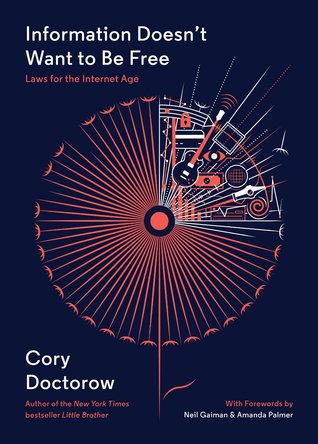More on this book
Community
Kindle Notes & Highlights
I remembered what Charles Dickens did, a hundred and fifty years before, when copyright laws meant that his copyrights were worth nothing in the U.S.: he was widely read, but he was not making any money from it. So he took the piracy as advertising, and toured the U.S. in theaters, reading from his books. He made money, and he saw America.
People actually like supporting the artists whose work they like. It makes them feel happy. You don’t have to force them. And if you force them, they don’t feel as good.
As long as people make art and content, and other people want art and content, the marketplace will adjust to create paths for them to connect and support each other.
This is the lesson I learned, as a rock star and as a street performer in my wedding dress: • Keep the content authentic, • keep the exchange honest, • keep the message spreading by any means necessary, • and people will come. • Once they come, if you make it easy for them, many will pay.
THERE IS NO real secret to success in business. If you want to make as much money as possible, all you need to do is make something people are willing to pay for, and offer it at a price they’re willing to pay.
Here are some other things that don’t make money: • Complaining about piracy. • Calling your customers thieves. • Treating your customers like thieves.
Tim O’Reilly is the founder and publisher of O’Reilly Media, one of the largest tech-book publishers in the world. O’Reilly Media puts on some of the world’s best-loved technology conferences, and generally serves as a hub of technology know-how for people all over. Tim O’Reilly is known for many things: he cowrote one of the first UNIX manuals, he popularized the term “Web 2.0.” He’s also famous for saying “Obscurity is a far greater threat to authors and creative artists than piracy.” I happen to agree with Tim on this point, but I worry that many folks who read those words decide that what
...more
We can’t stop copying on the Internet, because the Internet is a copying machine. Literally. There is no way to communicate on the Internet without sending copies. You might think you’re “loading” a web page, but what’s really happening is that a copy is being placed on your computer, which then displays it in your browser.
Creators have never enjoyed a wider, more diverse, less united, and more pliable set of intermediaries than we have today. From YouTube to Twitter, Facebook to WordPress, Wikia to Tumblr and many, many (many, many, many, many) others, there have never been more ways for works and audiences to come together. This is bad news if you’re a success from the pre-Internet era, with a business model married tightly to the intermediaries who serve your markets.
But in early 2001, Mark broke a major story. He dug up the patent drawings for a secret device created by famed inventor Dean Kamen that had been code-named “Ginger.” Everyone was abuzz about what Ginger might be. (It turned out to be the Segway scooter, which pretty much failed to revolutionize the world the way its investors had claimed it world.) CNN featured Boing Boing’s home page on the air, and Mark’s readership shot up exponentially overnight.
BACK IN 1984, Stewart Brand—founder of the Whole Earth Catalog—had a public conversation with Apple cofounder Steve Wozniak at the first Hackers Conference. There, Brand uttered a few dozen famous words: “On the one hand, information wants to be expensive, because it’s so valuable. The right information in the right place just changes your life. On the other hand, information wants to be free, because the cost of getting it out is getting lower and lower all the time. So you have these two fighting against each other.
Information doesn’t want to be free—people do.


